Program Perks
Education Policy Ph.D. 'Program Perks'
Funding: There are two fellowships available to potential Education Reform students; the Distinguished Doctoral Fellowship, and the Doctoral Academy Fellowship. Interested applicants can find information on these at Funding Options. Students in the program are also able to collect data in the field for research projects and present at national and international conferences free of charge, without needing to fund raise.
Job Market Preparation: The EDRE Ph.D. program is unique for encouraging students to start presenting posters and lecturing at conferences, join in on research projects with faculty and fellow students, and begin networking during their first year of the program. Students can work with anyone in the department on projects that interest them and can also take the lead on research projects. Students have opportunities to teach both in other departments and during the EDRE summer "math boot camp" for entering EDRE Ph.D. students. Through the Office for Education Policy in EDRE, students interested in policy work can choose to help write policy briefs and reports for the Arkansas Department of Education, present at the state legislature, help to run charter school lotteries, and work with school districts to conduct evaluations. The EDRE Lecture Series is run by students, which offers opportunities to network and meet senior researchers and practitioners in education policy and other related fields.
Placement Post-Ph.D.: EDRE boasts completion rates of 79% (4-year) and 89% (7-year), with program graduates having taken positions in academia, think tanks, federal and state governments, foundations, and elsewhere. EDRE grads have had diverse careers after the program, and include positions such as assistant professor, director of national research, education policy advisor, and commissioner of the National Center for Education Statistics at the U.S. Department of Education. Interested potential students can visit our alumni page to see where EDRE graduates are currently placed.
Travel Opportunities: Students in the program have opportunities to present free of cost at local, national and international conferences with faculty. Field work is conducted as part of several ongoing department Research Initiatives.
Life in Fayetteville, Arkansas: Nestled in the beautiful Ozark Mountains, Fayetteville has consistently appeared at the top of "Top 25 Places to Live in the U.S." lists and is in one of the fastest-growing areas in the country. Northwest Arkansas is home to the University of Arkansas main campus and offers a low cost of living, a thriving arts scene including the Walton Arts Center and Crystal Bridges Museum of American Art, and 400-plus miles of scenic trails for outdoor enthusiasts. The Northwest Arkansas Tourism Association has more details.
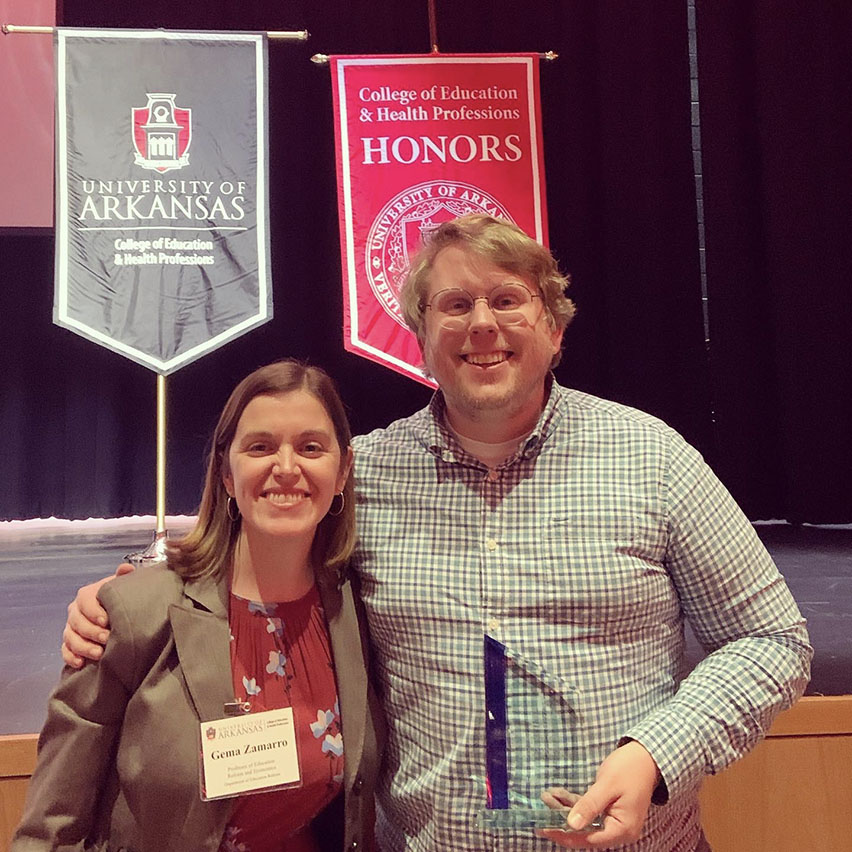
The education policy doctoral program is the only program of study in the Department of Education Reform, offering students extensive one-on-one mentoring from faculty and opportunities for collaboration.
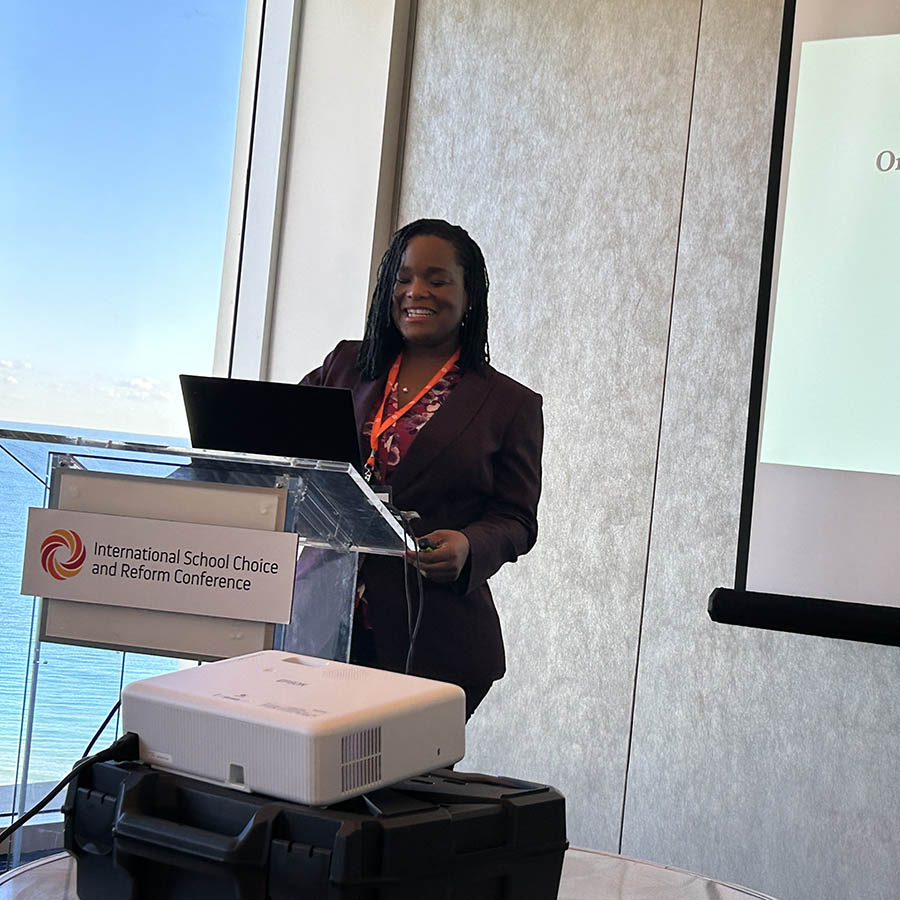
EDRE students start networking, presenting posters, and lecturing at conferences during their very first year of the program. Over the years, this provides valuable opportunities to travel while furthering ones academic skillset and network.
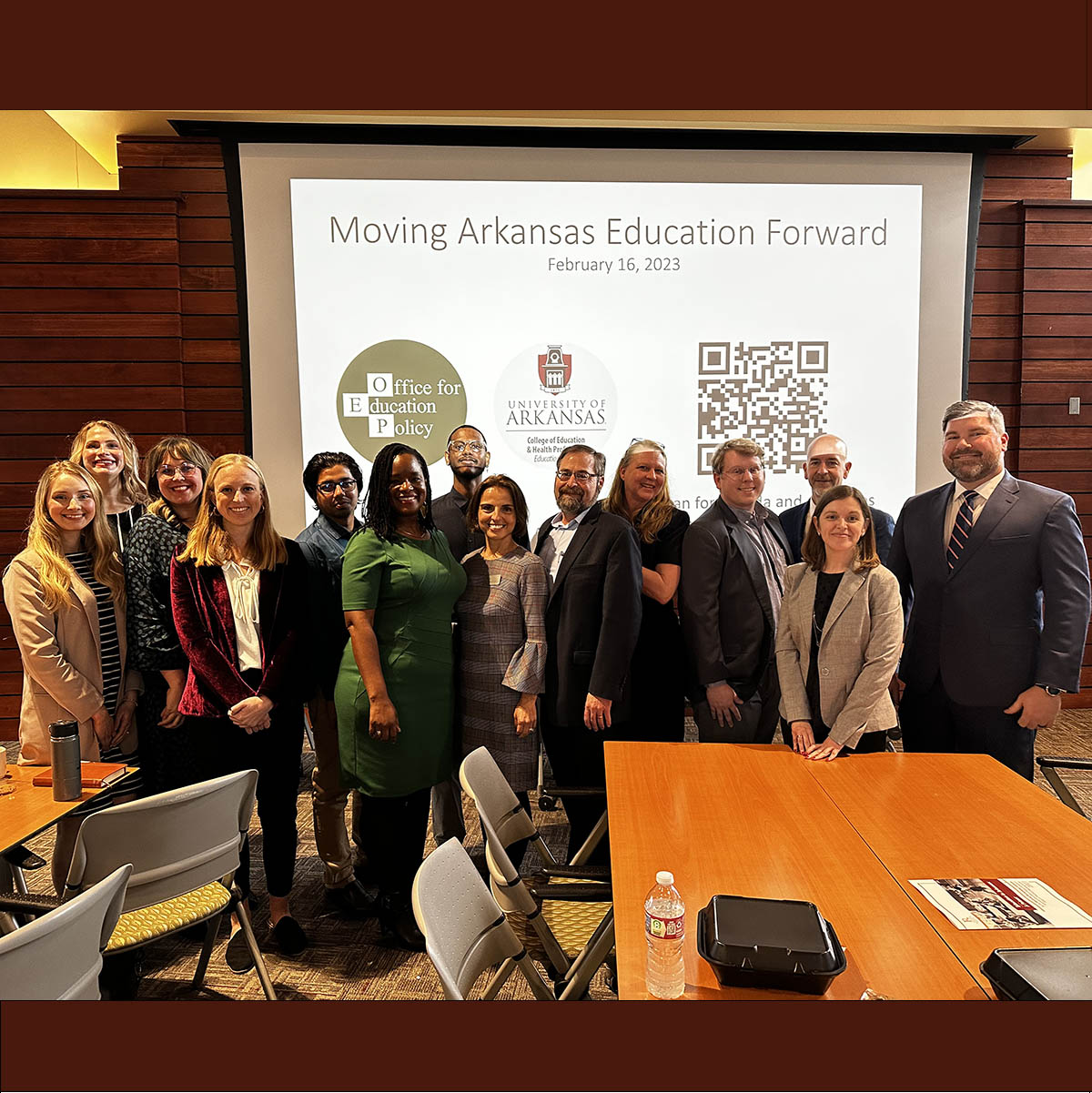
The Office for Education Policy, led by Dr. Sarah McKenzie and Dr. Josh McGee, provides a valuable opportunity to students who wish to work hand to hand with state lawmakers, educators, and other educational leaders from their first day in the program. The OEP produces research that supports educators and lawmakers in making thoughtful and impactful decisions regarding a variety of issues in Arkansas' schools.
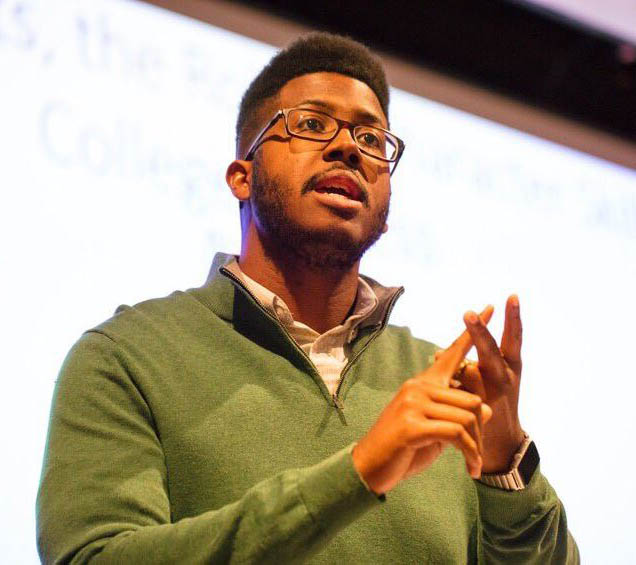
Students have opportunities to present new research every year of the program and even join competitions such as the 3 Minute Thesis Competition at the University of Arkansas, which EDRE student Malachi Nichols won in 2018.
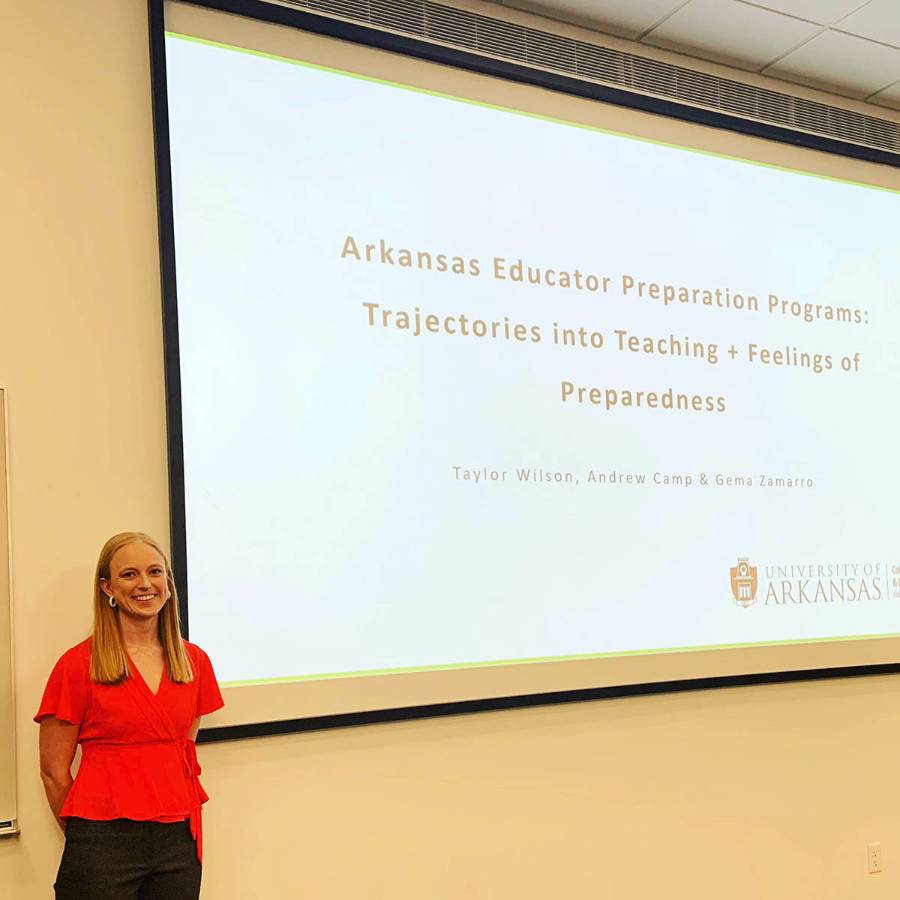
The department hosts a brown bag lecture series throughout the school year, providing students ample opportunities to hone their presentation skills before attending a conference. This series is also used so that students and faculty alike can receive feedback on ongoing projects, further contributing to EDRE's collaborative spirit.
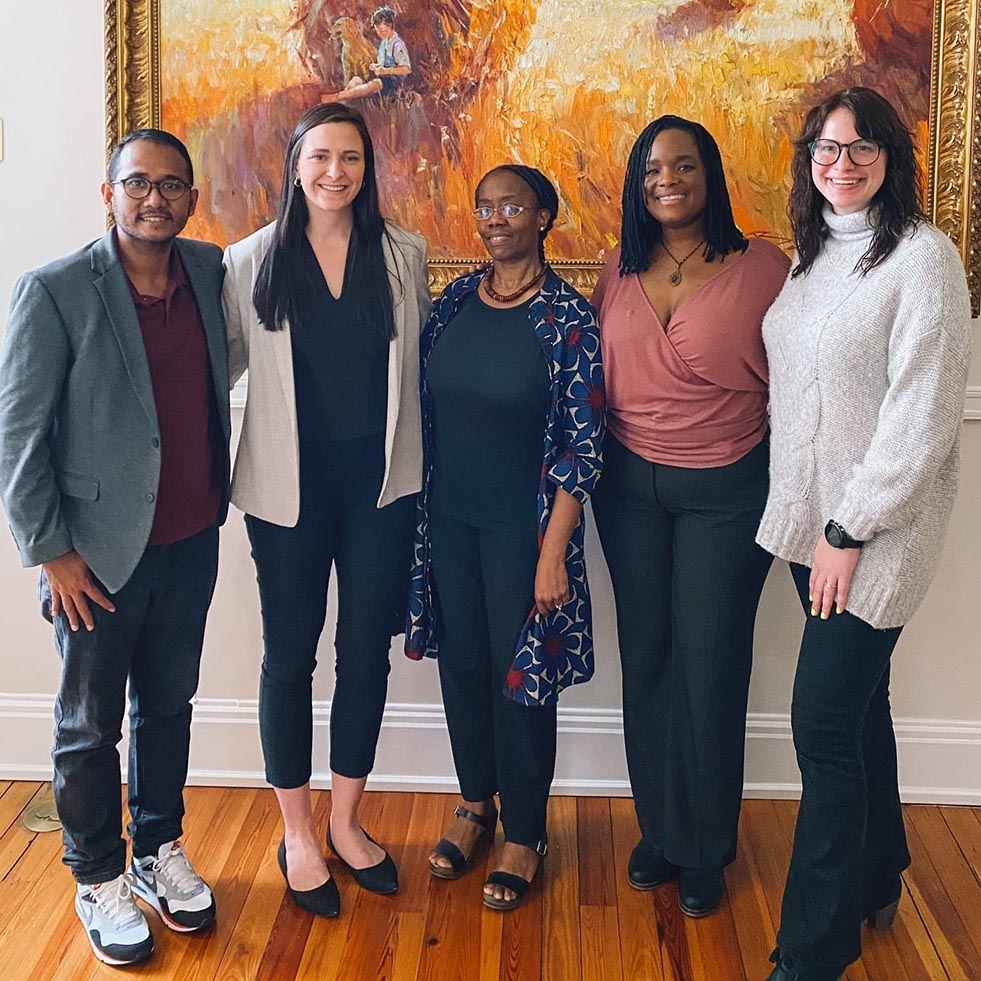
EDRE's annual Lecture Series is a student-led event that provides students with opportunities to build skills and relationships that help them succeed both in the classroom and after graduation. Lecturers are chosen through a collaborative process, which allows students to have a say in which professionals they would like to hear from and network with.